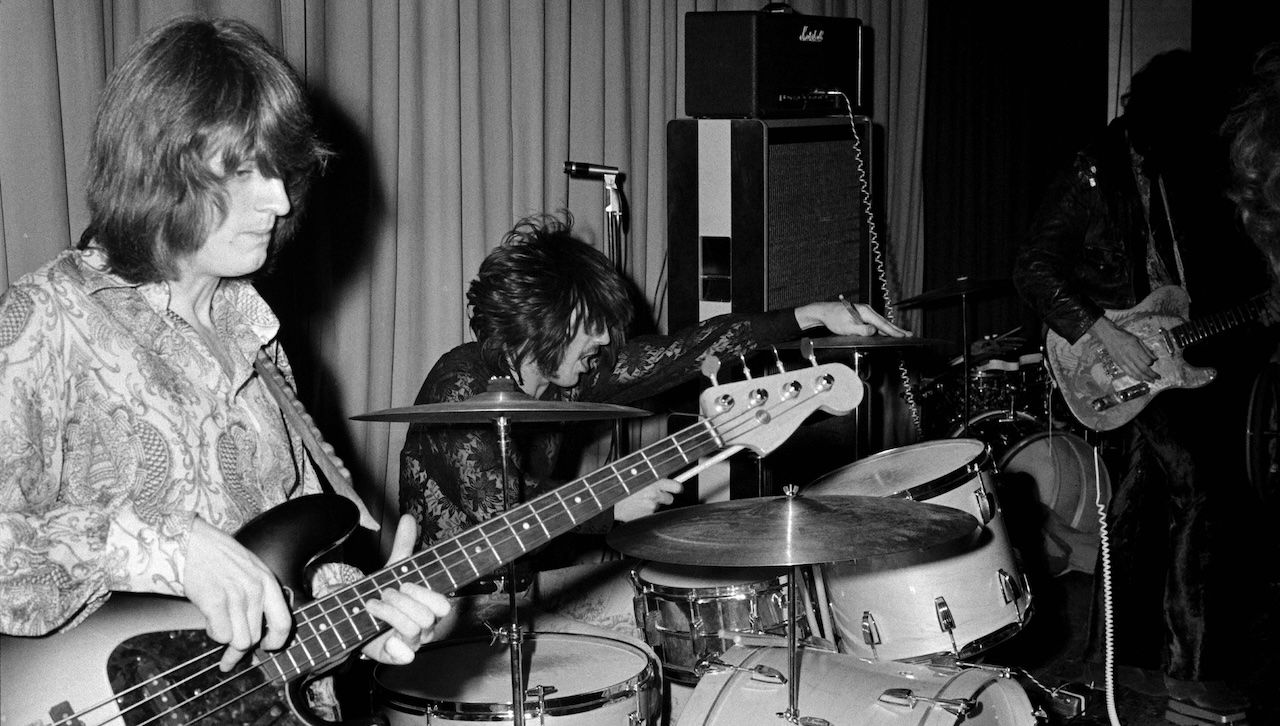
“I remember when Led Zeppelin II came out and hearing The Lemon Song. That bass solo is one of my favorite bass parts ever”: Why The Lemon Song is John Paul Jones’ finest moment in Led Zeppelin
(Image credit: Getty Images)
A choirmaster, organist and expert in many archaic music styles, John Paul Jones also happened to play bass guitar in Led Zeppelin, the biggest heavy rock band there has ever been or ever will be.
Whether anchoring those chunky riffs with huge grooves or adorning them with subtle upper-register flourishes, Jones inhabited the bass parts with the greatest of ease.
“I grew up listening to Led Zeppelin, and that’s when I realized how good John Paul Jones is,” Duff McKagan told Bass Player. “It really hit me when I was part of a Jimmy Page tribute in Seattle, and I went to the woodshed to learn his stuff. That’s when I gained a true appreciation for John Paul Jones.”
Led Zeppelin made its debut in 1968, but it was Led Zeppelin II, released in 1969, that really shook the masses. The record’s third cut, The Lemon Song, unwinds repeated cycles of a standard 12-bar blues framework that includes one of the finest rock bass solos ever recorded.
“When I was growing up, John Paul Jones was one of my favourite bass players,” said longtime Van Halen bassist Michael Anthony. “I remember when Led Zeppelin II came out and hearing The Lemon Song. It has this bass solo in the middle when it breaks down. That solo is one of my favorite bass parts ever. I still play that today and I still dig it.”
The song begins with an eight-bar intro in E; two blues cycles follow, followed by three faster cycles, and then one additional cycle at the original tempo before Jones steps up. His keen ear and technical manoeuvring conjure up concentrated, lyrical lines extracted directly from three blues scales: E, A, and B. (A blues scale consists of the root, b3rd, 4th, b5th, 5th, 67th.)
Led Zeppelin – The Lemon Song (Official Audio) – YouTube
Watch On
Jones’ acute expression is clear throughout his solo, which begins at 02:58. His ideas modulate, outlining each chord change with its parallel blues scale – the E blues scale over E7#9, the A blues scale over A7, and the B blues scale over B7.
All the latest guitar news, interviews, lessons, reviews, deals and more, direct to your inbox!
Sometimes Jones interjects an open string to keep a line moving or to pivot to another string, Jamerson-style; a good example can be found at 04:32. Jones also employs slides, which often occur over several pitches within a phrase.
Striking passages filled with melodic tension can be found at 04:20 and at 05:26, in which A# (the raised 4th of E ) plays a major role.
“It was all done with the same Led Zep ethic,” Jones told Bass Player back in September 1999. “Try everything, try what you know, don’t constrict yourself, and find out what works and what doesn’t work. If it doesn’t work throw it away. If it works put it in, and that is what Zeppelin was all about.
“We would try anything, it just didn’t matter! We were all honest with each other and so if something didn’t work it didn’t matter whose idea it was – if it didn’t work we didn’t use it. The only thing that matters is that you like what you hear.”
(Image credit: Photo by Gijsbert Hanekroot/Redferns)Jones’s eclectic style can be heard throughout the other tunes on Led Zeppelin II – especially What Is and What Should Never Be and Ramble On.
But despite all of the basslines Jones would go on to record after cutting this classic record (not to mention his extensive studio work from his pre-Zeppelin days), The Lemon Song can be considered the peak of his melodic, harmonic, and rhythmic brilliance.
Chris Jisi was Contributing Editor, Senior Contributing Editor, and Editor In Chief on Bass Player 1989-2018. He is the author of Brave New Bass, a compilation of interviews with bass players like Marcus Miller, Flea, Will Lee, Tony Levin, Jeff Berlin, Les Claypool and more, and The Fretless Bass, with insight from over 25 masters including Tony Levin, Marcus Miller, Gary Willis, Richard Bona, Jimmy Haslip, and Percy Jones.











